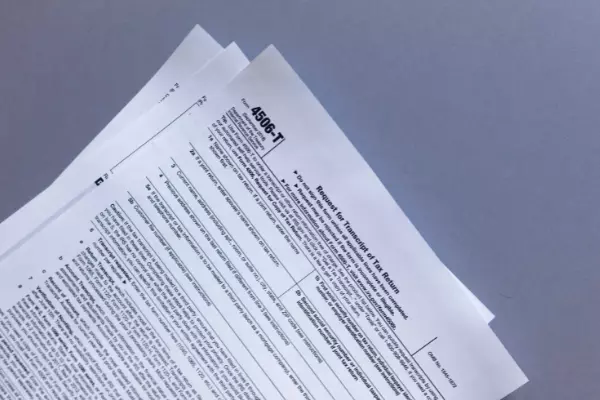If you want to keep the IRS out of your life, especially if you have previously experienced an IRS audit or penalties and interest, IRS tax return transcripts can be an important tool. But if you don’t know how to read them and what they mean, then you could end up paying more than necessary to the IRS and paying for services to resolve IRS issues that could have been avoided.
In this article, we’ll show you exactly how you can use your IRS transcripts to:
- Prevent the IRS from asserting you owe more tax, penalties, and interest
- Ensure you never miss a tax document on your return again
- Preempt any inaccurately issued tax information
We’ll explain how to request your IRS transcripts, how to read them, and walk through the key terms that the IRS uses so that you can take a smart approach and keep the IRS out of your life.
IRS Backlogs and the Impact on Taxpayers
It’s no surprise that the Internal Revenue Service is currently understaffed from a limited budget and backlogged with work from the shutdown during covid. This has contributed to the IRS more heavily relying on automated programs and technology to increase the amount due on tax returns. As a result, it has become more important than ever to ensure you or your tax preparer are utilizing this strategy to stop the IRS from increasing your tax along with assessing you with penalties and interest.
Because the IRS systems are slow, their automated notices do not usually come out timely. Instead, there is almost always a substantial time delay, often a year or two. This matters because once the IRS notice is issued, the penalties and interest are based on the amount of time that has passed, even though you had not yet been sent the IRS notice!
If the income added to your return by the IRS is accurate, then you’re stuck with accrued late payment penalties and interest for the time you were completely unaware of the tax due. There are also additional negligence and substantial understatement penalties often assessed that are difficult to remove.
If the income added to your return by the IRS is inaccurate, then you’re left fighting the IRS to prevent the increase in tax, penalties, and interest. Since the notice is generated by technology, not an IRS agent, there are often notices with clearly incorrect tax positions. No matter the tax due notice, they always require time and effort to argue, and they have requirements as far as response time and information that must be included. We will often see these notices put individuals in a situation where it is difficult to resolve the notice on their own, but the cost of representation will be more expensive than the balance on the notice.
The Secret Lies in Your IRS Tax Transcript
So, what if we told you there was a way to always prevent these automated IRS notices?
It’s simple, quick, and easy. It’s usually not done because individuals don’t know about it and tax preparers often don’t take the extra step.
The key is that the IRS automated notices are based on mismatches between the taxable income you report on your original federal tax return and the income on tax documents sent to the IRS, and these tax documents sent to the IRS are publicly available for you to download your own file.
You read that correctly – you can directly download the information on file with the IRS and make sure all of it is on your return before your file. If you do this, you should never have to worry about receiving an automated IRS underreporter notice.
What is an IRS Transcript?
There are several transcript types, which include Tax Account Transcripts, Wage and Income Transcripts, and Tax Return Transcripts. The transcript that provides the ability to preemptively review third-party documents filed under your name and social is the Wage and Income Transcript. After filing, the Account Transcripts will show that your filing was received, notices issued, and any penalties or interest assessed. Finally, the Tax Return Transcript will show the numbers you filed on your tax return but is only available for the last three years of tax returns.
Examples of items you can review on your Tax Account Transcript:
- Stimulus payments
- Child Tax Credit Advance Payments
- Refund money issued
- Tax Due
- Penalties
- Interest
- Date the IRS received your return
Examples of items you can review on your Wage and Income Transcript:
- W-2s
- 1099-MISC or 1099-NEC
- 1099-B with stock transactions
- 1099-R with retirement distributions
5 Common Questions about IRS Tax Transcripts
1. Does my IRS Transcript show the amount I owe?
Yes, your Account Transcript will show the current tax, interest, and penalties that have been assessed.
Keep in mind that if you only recently filed or if an assessment is in progress, then there may be a delay. Your Account Transcript will also usually show notices that have been generated, though it won’t always clarify what the notice is about without you doing some additional research on the notice number.
2. Does my IRS Transcript show if I have received my refund?
Your Account Transcript will show if the refund was issued, not whether you received it. If your tax refund was sent and you have not yet received it, verify that the last return you filed has your current mailing address.
Often individuals will move without updating their address with the IRS, and your refund will be sent to the prior address. If this is the case and you need to have your refund re-issued, you can contact the IRS directly (but expect very long hold times) or you can hire an Attorney, CPA, or Enrolled Agent to contact on your behalf in order to update your address. There is also a change of address Form 8822 you may submit, though it will likely take more time to process.
In addition, if your refund has already been issued but sent to the wrong location, then you will need to request your refund to be re-issued by the IRS.
3. Does my IRS Transcript show if I have received my Economic Stimulus Payment?
Yes, just make sure you are looking at the correct tax year. Your 2020 Account Transcript will show the first two stimulus payments amount paid out if you were eligible. Your 2021 Account Transcript will show the third stimulus payment, as well as any advance Child Tax Credit payments sent.
4. Does my IRS Transcript show if I am getting audited by the IRS?
Yes, it can. Your Account Transcript will often flag you for an audit months before the IRS sends you a formal notification.
5. Can I see when my tax returns were filed?
You can see when your tax returns were received by the IRS, but not necessarily when they were filed, especially if you mailed your returns.
It’s very important to keep the tracking support when you mail your original tax return (Certified Mail Return Receipt is best) so that you can prove the date you mailed your return, especially if it is close to a tax deadline. If the IRS receives your return after the deadline, but you can prove you sent it before with Certified Mail proof, then you should have no trouble removing any penalty assessed.
How Tax Transcripts Can Help No Matter Your Situation
We believe it’s important to check your transcripts before filing your return even if you have no prior IRS trouble. As a result, a couple of common objections we hear from some individuals are:
“I want to receive my refund as early as possible in the year before all tax documents are available in the IRS system.”
Our response: Then file early! Yes, you will have to wait until later in the year to review a complete IRS file of all your tax documents (we usually recommend waiting until at least July until IRS systems get faster in future years). BUT, after you file your tax return, still check your IRS file later in the year and if you missed anything, amend your return.
In fact, even better than amending your return is to file an early tax extension even if you do not expect to need it, and then you will be able to file a superseded tax return between April 15 – October 15 so that it will process faster. Superseded returns are returns that are filed after the original return but within the filing period.
Catching any tax document mismatch, even an inaccurately issued tax document, before the IRS does will minimize any late payment penalties and interest, and usually, completely avoid negligence and substantial understatement penalties. It is also much less expensive to update your federal tax return than hire tax representation once an IRS notice has been issued.
“I know that I have all of my tax documents, and I definitely did not miss providing any to my tax preparer.”
Our response: You may in fact have all your documents and tax records. BUT, what if the IRS was sent an incorrect tax document that was never sent to you! We often see it happen.
A couple of examples:
- A taxpayer was issued a Tax Form 1099-C cancellation of debt ten years after the debt was in fact canceled. An IRS notice was of course generated, and the Form 1099-C was never sent directly to the taxpayer, at least not at the taxpayer’s current address. This individual was now left having to hire representation to prove the absence of the cancellation of debt when the relevant information and documents were no longer in her files because it was over ten years old.
- A taxpayer was improperly issued a Tax Form 1099-MISC by an ex-business partner because they did not leave on good terms. The ex-business partner knew it would create issues with the IRS, and of course, did not send the Form 1099-MISC directly to the taxpayer.
When you’re in this situation, it is usually best if you’re proactive with the IRS. If you have a position on why it is inaccurate based on substantial authority, you want to take the position on the original return with a clear disclosure, rather than leaving the information off your return and waiting for the automated IRS notice.
CONSULT WITH AN EXPERIENCED TAX PROFESSIONAL
At DiLucci, our experienced team of tax professionals is here to help you with your individual or business tax needs, including assistance with IRS transcript collection and tax record analysis.
Our services include:
- Individual and business accounting
- Tax return preparation for individual and business taxpayers
- IRS tax resolution
- Business bookkeeping
- Financial accounting and analysis
- Cashflow management
- Business and Personal tax planning services
As always, we’re here to help. Click here to schedule a consultation with our office and we’ll follow up with you promptly.


Pingback: 10 Tips to Reduce Your Chance of Tax Audit in 2021 - DiLucci Inc. - Bookkeeping, IRS Resolution, & Tax Services in Dallas Texas